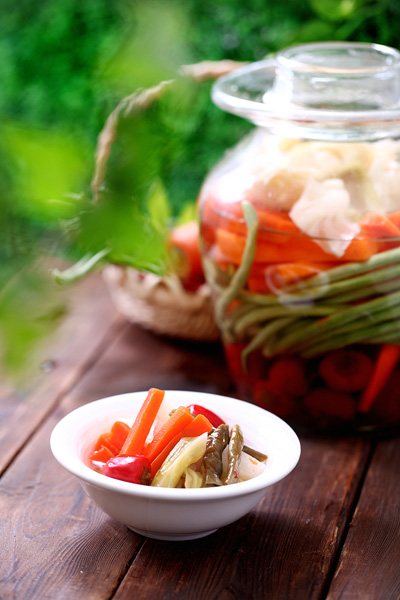Palate-cleansing pickles


As our culinary journey heads further north, the importance of pickles increases.
The reason is simple. In the cold harsh winters in the northeast, the only way to eat any vegetables at all was to pickle them in advance. Although modern logistics mean that fresh produce can now be transported to every corner of China in almost every season, the preserving of vegetables is still very much an annual ritual.
Whole cabbages are pickled in Ali Baba urns large enough to hide a grown man. After some maturing, the vegetables would have turned tart and pungent and can then be sliced thinly and cooked in winter hotpots with thin slices of meat, and handfuls of mung bean vermicelli.
We all know kimchi, that famous vegetable pickle normally associated with Korean cuisine. Few people realize that the Korean ethnicity also live as an ethnic group in the northern most regions of China.
Here, before the winter cold hardens the ground, enormous amounts of vegetables are turned into urns of pickles and stored in cellars beneath the earth.
Entire neighborhoods turn out to help one another prepare the season's store of pickles and the occasion may be lifted with spirited songs and dances.
China may have expanding pockets of rapid urbanization, but even as city and country integrate in what is still largely an agrarian nation, regional pickles often offer migrant workers of every level something they miss the most-a taste of home.




































